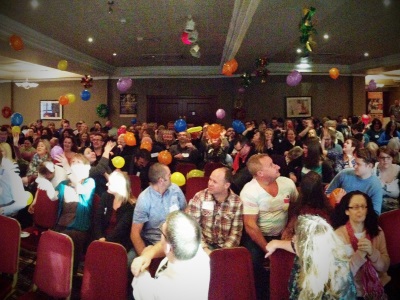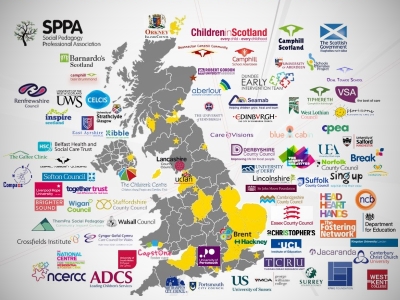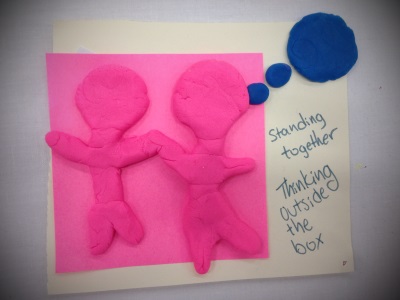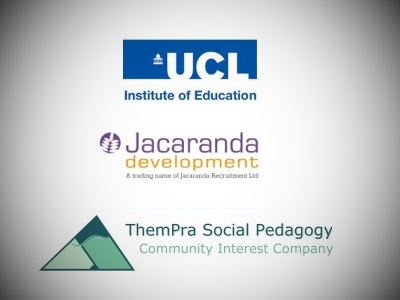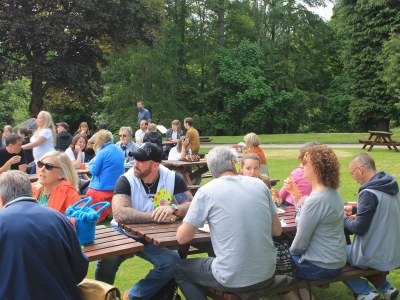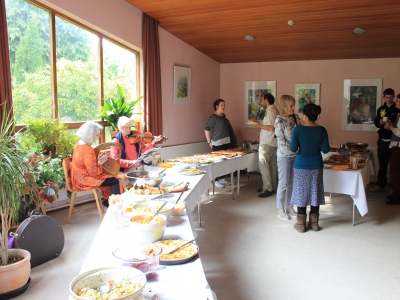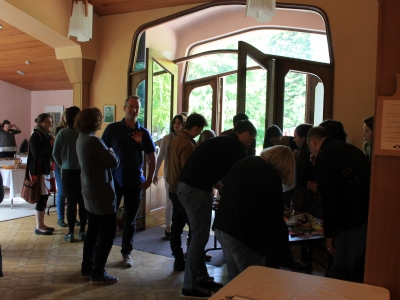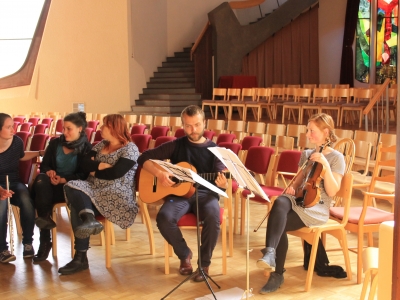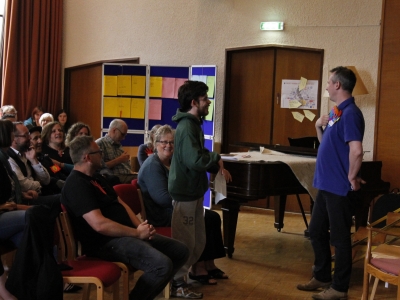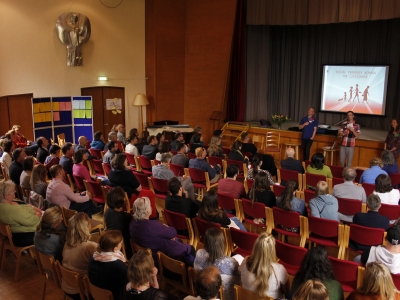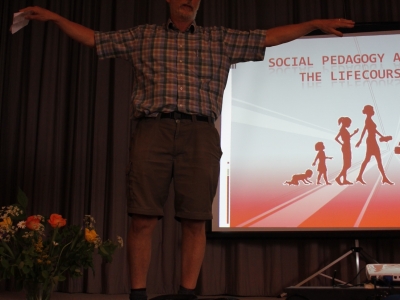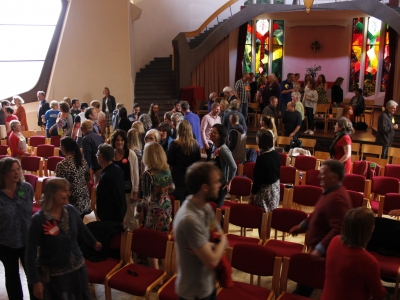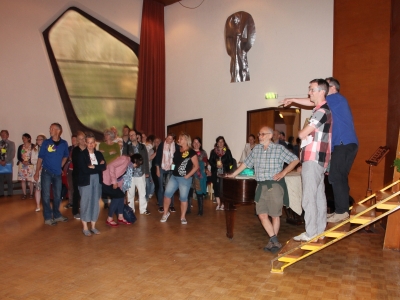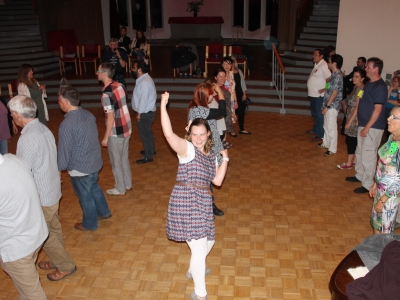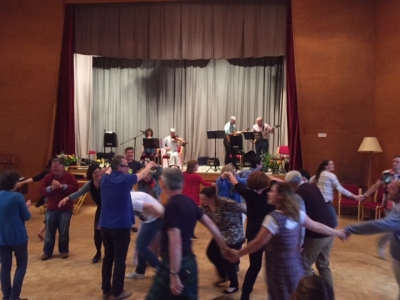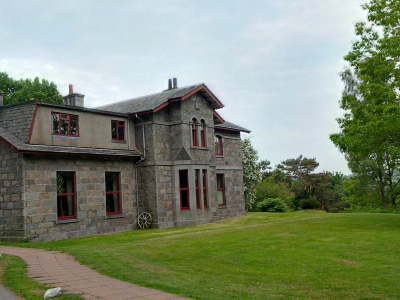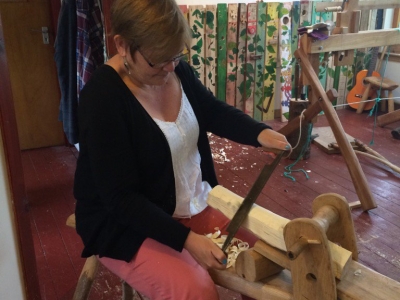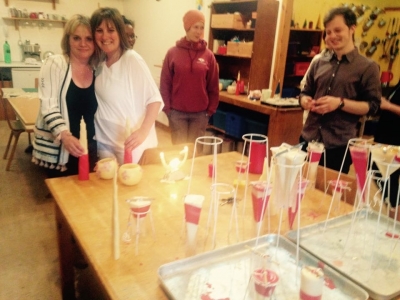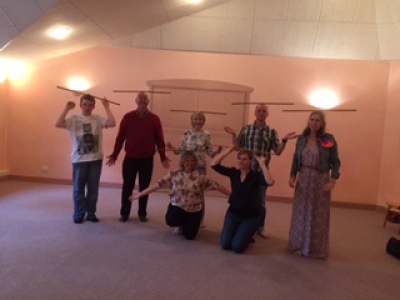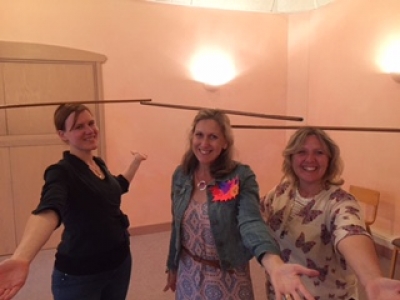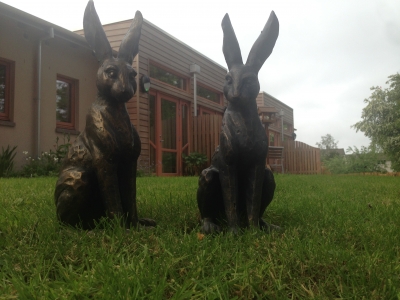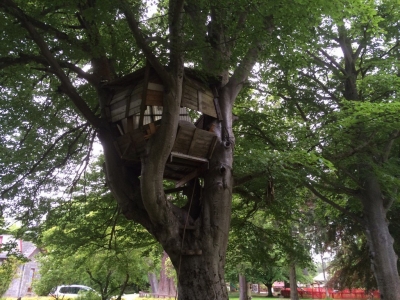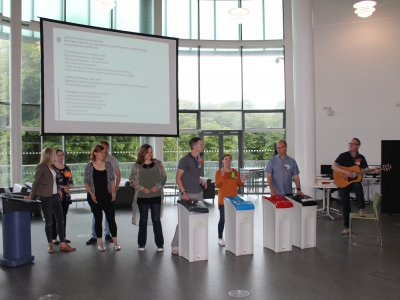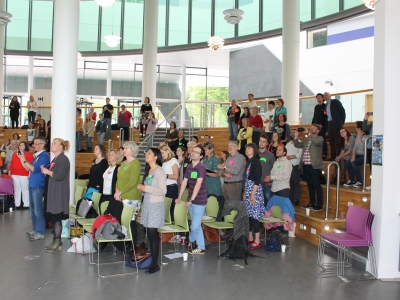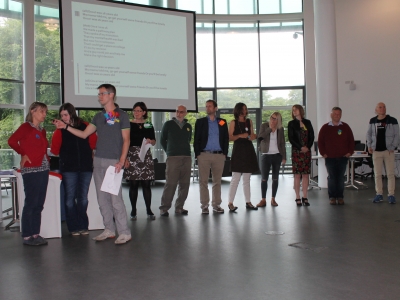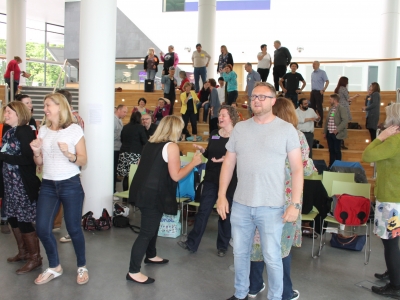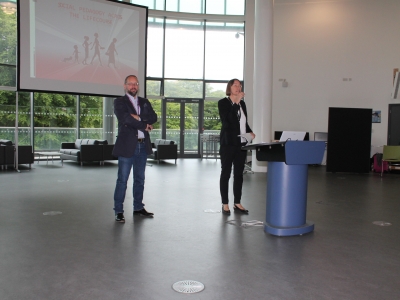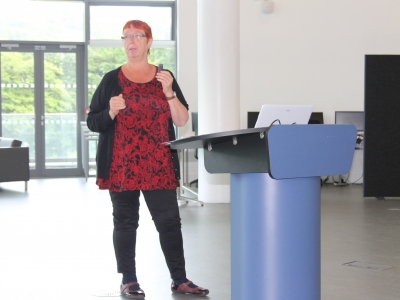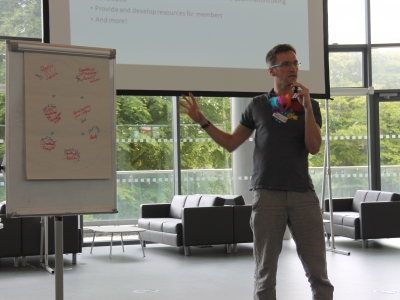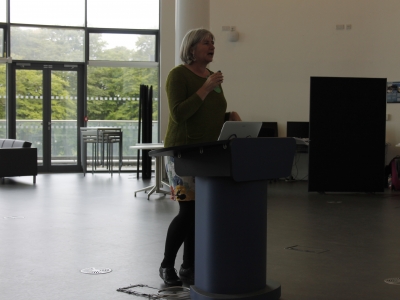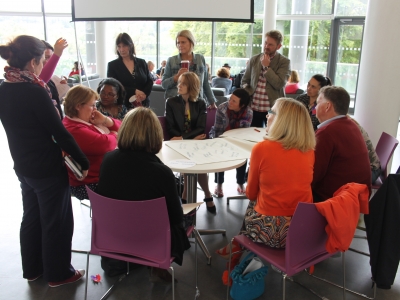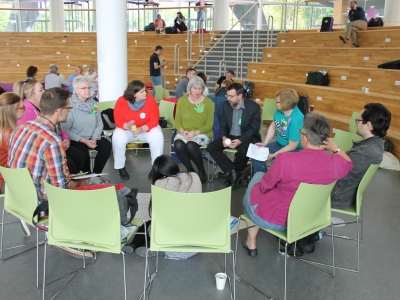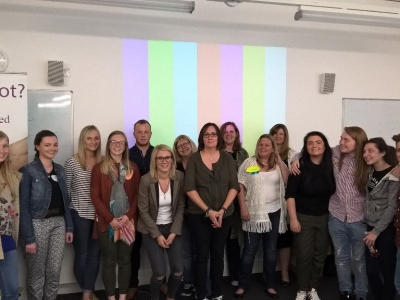The SPDN at Camphill School Aberdeen and Robert Gordon University on 09/10 June, 2016
With its warm community spirit, peaceful environment and holistic approach to living together, the Camphill School Aberdeen is easily one of the most inspiring social pedagogical settings to visit. Participants at the 14th SPDN were able to feel this with every fibre as the Community hosted the evening seminar.
Evening Seminar:
Day Seminar:
Fiona Feilberg from RGU then presented on the use of self and reflective practice across the life cycle, highlighting the importance of meaningful and purposeful relational work, because change is interpersonal. She emphasised the role of theory when using our self in order to anchor us and the need for reflective supervision to help us explore and make sense of what others evoke in us. Her presentation found a lot of resonance amongst participants and, together with the other plenary presentations, is available below.
Social pedagogy in the UK is currently at an exciting stage, with ever more organisations pioneering how they can relate its conceptual and ethical framework to practice. In order to provide greater coherence, clarity and guidance amidst these dynamic activities, we’ve recently been developing social pedagogy standards and are currently setting up a Social Pedagogy Professional Association. Prof Claire Cameron from the Centre for Understanding of Social Pedagogy at UCL Institute of Education, who leads on these developments, offered further insights into the rationale behind professionalising social pedagogy and outlined how SPDN participants can get involved so as to actively shape SPPA. In particular, we were keen to consult further with delegates on the standards and on what would make SPPA membership meaningful. Following Claire’s overview, we therefore offered participants to get in dialogue around these themes within an open space forum. They could contribute to whichever forum conversation they were interested in, for as long as and in whatever way they chose to. The multitude of perspectives brought to the open space conversations were immensely valuable and demonstrated the value of diversity. We have since aimed to integrate these within a coherent set of social pedagogy standards and a members’ charter for the Social Pedagogy Professional Association as well as in shaping up the membership offer (please see the first SPPA newsletter for further details). Many of these conversations carried on well into the lunch break and were continued over salad, sandwiches and mini muffins.
The afternoon offered participants an opportunity to join two workshops on a fascinating range of subjects exploring aspects of social pedagogy across the lifecourse:
- How to handle a moral dilemma – Søren Kayser (University College Capital, Copenhagen)
- From pilot light to cooking with gas – Sandra Sabiston (Camphill Blair Drummond)
- Why can’t I just be myself? Self and vulnerability in social pedagogy trainings – Chris Walter (Camphill School Aberdeen) and BA SP students from RGU
- Life story work – sharing a personal journey – Lorna Ann Farquharson and Vibeke Alfred (Camphill School Aberdeen)
- Relationships are the Golden Thread in a child’s life – Nicki McLaughlin (Care Visions), with input from Danny Henderson, Lisa McGrane and care experienced young people – Jenn Clark, Rebecca Beedie and Mirren Kerr
- Strengthening and nourishing self as a prerequisite for forming positive relationships –Laurence Alfred (Camphill School Aberdeen)
- The adventure of theory meeting practice – A joint exploration of how social pedagogical concepts are understood and practiced in the UK – Anthony Moorcroft & Sylvia Holthoff (ThemPra Social Pedagogy)
- Dialogue operation as a method to reduce risk – Colin Paterson and Brigitte Paterson (Compass Child and Family Services, Ireland and KJSH e.V. Germany /Lüttringhaus Institute for Case Management, Germany)
- Nature Nurture, promoting resilience through outdoor play and nurturing – Terri Harrison (Nature Nurture Project)
- Reclaiming Social Work – Stacey Wilson and Leah Henderson (Aberdeen City Council)
Feedback from workshop participants was very positive, and we’re pleased that many workshop facilitators kindly offered to share materials from their workshops with the wider SPDN. Please contact us if you would like to find out more.
In the final plenary session we turned the focus towards reflecting on the learning from the previous 24 hours and on how social pedagogy can be applied across the lifecourse. Participants grouped around 5 large tables each representing a particular life stage from early childhood, childhood, adolescence, adulthood through to old age. In each group they discussed what they felt was important for individuals at this life stage and what role social pedagogy could play. Participants visualised their ideas on a large banner, which you can see below.
Early years

Childhood

Adolescence

Adulthood

Old age

Feedback received from participants on the event was overwhelmingly positive and included some genuinely heart-warming comments, with some participants highlighting the impact that experiencing Camphill has had on them and several mentioning that this had been the most enjoyable SPDN event they’d been attending. A few people noted that they would have liked the programme to focus more on the lifecourse, which echoed our own reflections on the 24 hours. We’re really pleased that participants went away with many exciting ideas and new connections, and we look forward to our next event, which will be announced in due course on our website. Please feel free to sign up for SPDN news here.
@SocialPedagogy Loving the SP vibe on the Camphill Estate. pic.twitter.com/Hn1FItVYAJ
— jeremy millar (@jezmillar27) June 10, 2016
@SocialPedagogy Wonderful cakes at @CamphillACS pic.twitter.com/5HO4sRRI5E
— jeremy millar (@jezmillar27) June 10, 2016
Former CS Chair talks about love & quality of relationships – is policy starting to recognise this is important? Social pedagogy does #SPDN
— Camphill Scotland (@CamphillScot) June 10, 2016
Visited a new build older persons home with #SPDN this evening. Good use of space, light and paintings. Wise and sharing residents. Thanks.
— Vic (@cpeanose) June 9, 2016
Fantastic SPDN conference by @SocialPedagogy. Great experiences, ideas,debate @jezmillar27 @aligardnerUCLAN @JlloydJane
— jameel hadi (@jameel_hadi) June 10, 2016
Fiona Feilberg on use of self and reflection #SPDN @RobertGordonUni pic.twitter.com/i3DafcJfTZ
— Care Visions Why Not (@WhyNotCV) June 10, 2016
9.30 at social pedagogy conference in Aberdeen and Lowis @UCLanSocialWork is already on the bin/drums @JlloydJane pic.twitter.com/sqDjDr8Ffr
— Ali Gardner (@aligardnerUCLAN) June 10, 2016
@whynotcv going down a storm at the #spdn #relationshipsarethegoldenthread pic.twitter.com/v5ZpjPx1BY
— danny henderson (@hendeac) June 10, 2016
Thanks to @CamphillACS @RobertGordonUni for hosting a brilliant #SPDN event! We’ve had an amazing time!
— ThemPra (@SocialPedagogy) June 10, 2016
@SocialPedagogy @CamphillScot @RobertGordonUni thank you all for a fantastic SPDN – really value the space to catch up and reflect
— Jane Lloyd (@JlloydJane) June 11, 2016


